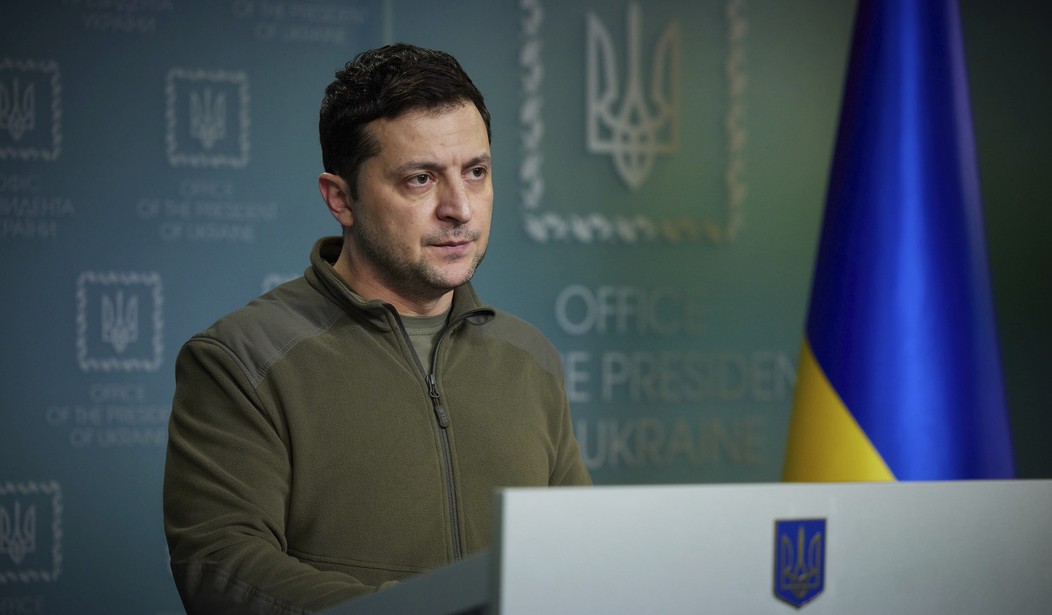Russia regularly rounds up civilians from Ukraine and uses them to exchange for Russian prisoners of war. This ugly dance has resulted in at least 20,000 prisoner swaps.
The practice needs to be condemned globally. National political leaders must request a formal investigation into Russian crimes against non-combatants. They should ask nongovernmental organizations such as the United Nations and Organization for Security and Co-operation in Europe to collect evidence and testimony from victims to build a case with the International Criminal Court.
Last month, I interviewed Boris Semenov, a man from Bucha, Ukraine, at a Kyiv police station. He wasn’t an inmate or an officer. He had been part of a Russian prisoner exchange.
Semenov is a Ukrainian citizen, but he’s ethnically Russian and Russian is his first language. He’s 49 years old but is weathered after enduring such difficult circumstances. He looks much older.
As I spoke to him, he explained how he had ended up party – or rather, captive – to one of these exchanges. A few weeks after the Russian invasion began, he and his friend went out in their village in search of water because the Russians had damaged their village’s pipes beyond repair.
Walking along the village road they were confronted by four Russian soldiers. They pointed their guns at them and ordered them to strip to their underwear and lie on the ground in 20 degree Farenheit weather.
Recommended
They began calling them Nazis. Semenov tried to explain to them that they weren’t Nazi, only for a soldier to strike him in the face with the butt of his gun, knocking out four of his teeth.
Then, the Russians tied his hands behind his back and wrapped duct tape around his head, covering his eyes. They brought Semenov and his friend to an interrogation center where half a dozen Ukrainians were already being held.
Still blindfolded, Semenov heard the interrogators at work, asking the prisoners, “Where is the Ukrainian army?” and “Where are biological weapons?”
When they didn’t give the answer the interrogators apparently wanted, Semenov would hear a gunshot and screams.
When it was his turn, he felt the cold tip of a pistol against his temple. Desperately, he told his interrogator that he didn’t know anything about the military – he was just a civilian. At this, a soldier fired a shot past his ear, and at the same moment, another gave him a hard slap on the temple. For a moment, Semenow thought he had been shot.
After 24 hours of captivity, Boris and his friend were released, and they headed back to their village and safety. However, they didn’t make it home.
As they walked, they saw a column with 15 light tanks, and several armored personnel carriers. The Russians waved to the two Ukrainians, indicating that they should approach. Once again, they began interrogating Semenov and his friend – this time asking why they were covered with blood.
Semenov quickly explained that they had just been released by other Russian soldiers and were on their way home.
That didn’t satisfy the leader of the column. He used his cell to call someone, and after ending the call, informed Semenov and his friend they would be returning to captivity.
Again, they were blindfolded, and one of the men forced him to lie face down on the ground. He kicked him in the ribs, ultimately breaking three on each side.
This time, Semenov and his friend were taken to Russia, where they were kept in prison for two months. For the first six weeks, they were given one meal a day and were starving. Suddenly, their conditions changed. They were given plenty of food and, inexplicably, treated much more humanely.
Then, a little more than eight weeks after his ordeal began, Semenov was put on a plane to Belarus, and eventually ended up in Zaporizhia, where he and several other Ukrainians were exchanged for an equal number of Russian soldiers.
Boris concluded by saying, “I’ve always been proud that I’m Russian, but now I’m ashamed – I’m learning to speak Ukrainian now.”
To quote Justice Robert Jackson, speaking at the 1945 Nuremberg Trials, “The wrongs which we seek to condemn and punish have been so calculated, so malignant, and so devastating, that civilization cannot tolerate their being ignored, because it cannot survive their being repeated.” Now, as then, these words ring true. The international community must band together to bring justice to the innocent victims of Russia’s war on Ukraine.

























Join the conversation as a VIP Member